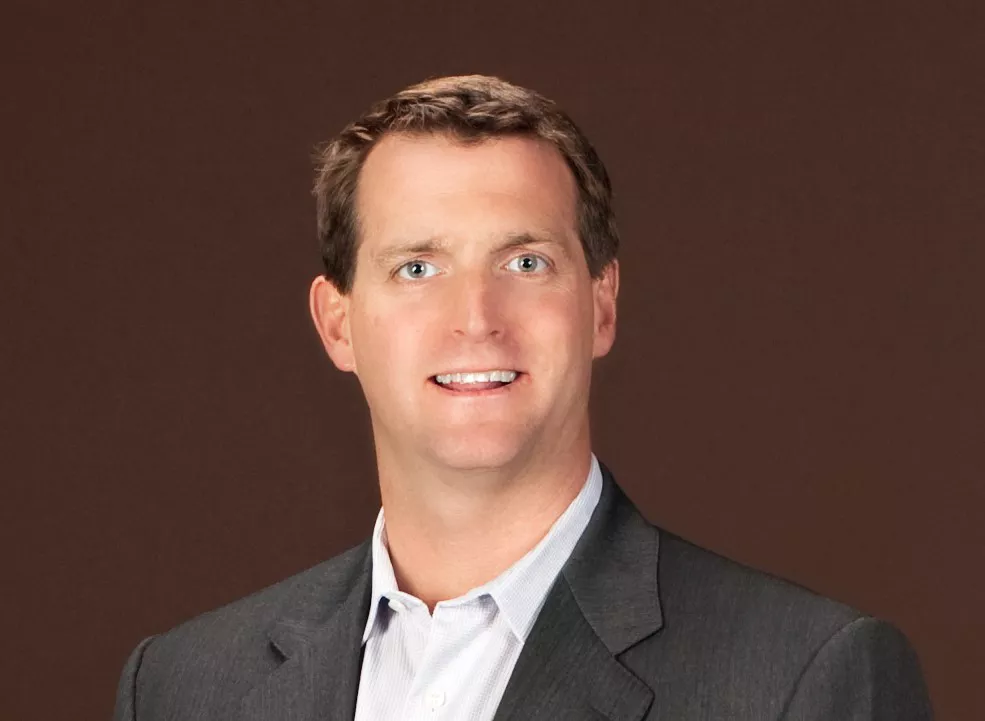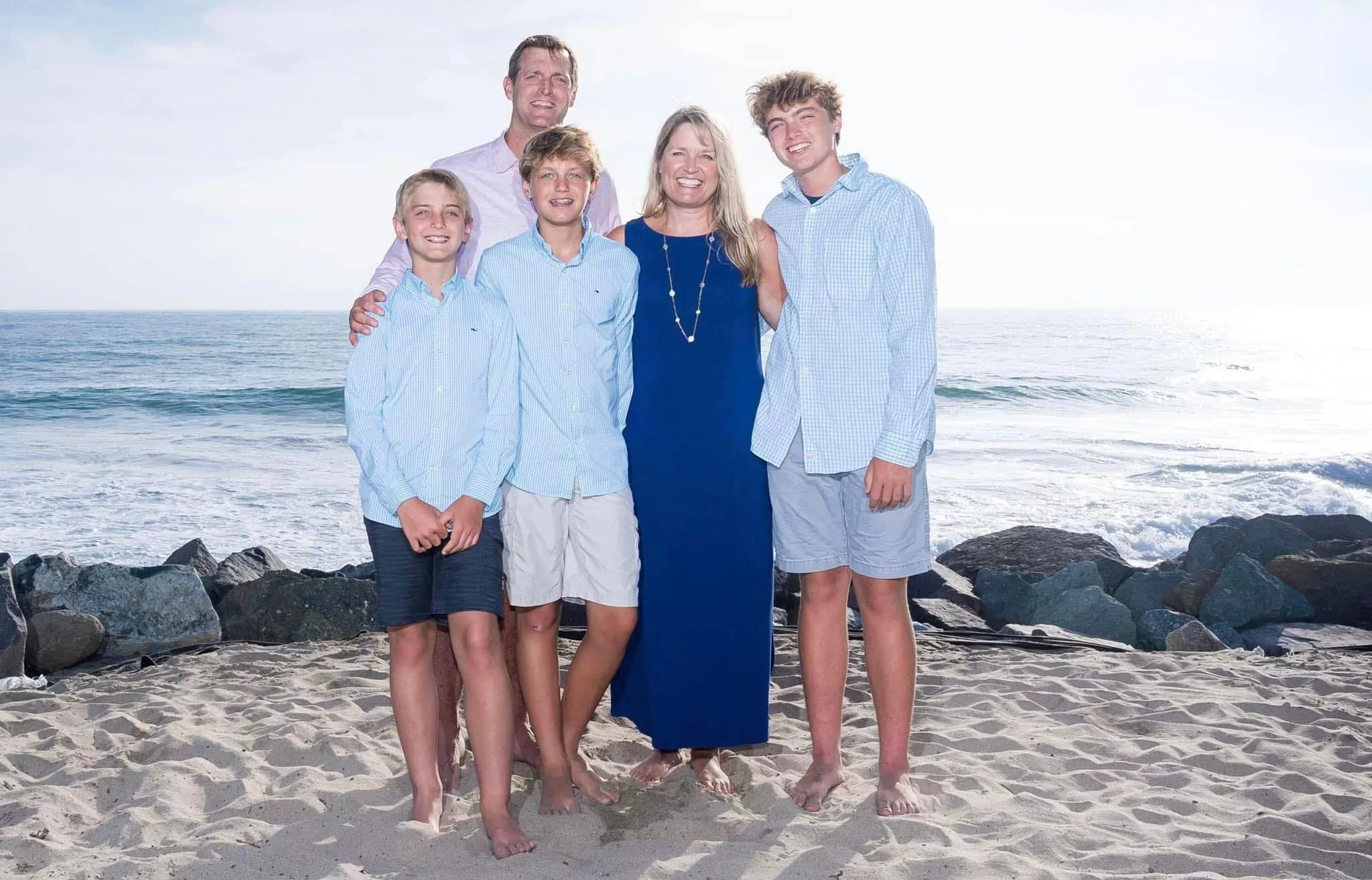Q&A with Brian Turner: Executive President, Americas

We talked to our leader for the United States, Canada, and Latin America about how clients’ needs are changing, how Slalom is evolving to meet those needs, and why curiosity is essential in a consultant.
What does the president of the Americas do at Slalom?
You know, it’s different every day. Ultimately, you’re connecting with our clients to tailor our business to create measurable value and impact to help them be greater. I also connect with our people to achieve the same thing—connecting to drive our strategy and work to rally as a team while also trying to understand what they’re feeling and going through. So if you really look at what I consider my job, it’s two things. First, help us execute on our vision for our clients. Then it’s to grow, protect, and support our people and take down any barriers that are keeping them from helping us get there.
Tell us a little about your first role at Slalom.
I came to Denver in 2008 to help start and build the Slalom Denver office. It was so amazing to build a team to serve our community, and it was one of the most challenging and rewarding roles I’ve had. I’ve always loved building teams, but this took another level of strategy, discipline, and planning. There was so much to learn about growing a holistic business all while Slalom was maturing and finding its way as a company. During those start-up days, your hands are in everything from recruiting to marketing and sales, while also establishing your long-term culture. It was such an amazing journey—going from 10 to 50 people to 100—it was a special time. We built a really connected, fun thing in our community, going from nobody knowing our name to creating true impact. It’s just amazing, the run we’ve been on.
What about your career prior to Slalom?
I grew up always having a job of some sort, and I learned something in every job I had. I was always experimenting and learning before entering the corporate world, and that’s something I’m passionate about in my current roles. I spent a summer taking care of kids, running camps, coaching sports teams. I ran a fruit stand on the side of the highway at one point, which was pretty lucrative. And then I did a run in construction, drove a truck, and even worked as an assistant in a medical lab. Working across industries teaches you to respect a strong worth ethic, how to work with a variety of teams and leaders, and how to take pride in doing the best at whatever you take on. Every job I’ve held adds to who I am and want to be in my current role with Slalom.

What do you think makes a great consultant? What are some of the qualities that you look for when you’re hiring?
For me, curiosity and accountability. You’ve got to truly be curious and want to help your clients with their problems. You need to truly understand the business value to the clients.
From an accountability perspective, we as consultants are paid for results. Talk is cheap—we’re paid to bring more, and that is what we always need to remember. Your reward for your hard work and for solving complex problems is getting to work on even more complex problems. To get to help our clients with their most transformational work is an honor. You have to treat it like that and realize the work, the experiences, and your learnings are the tools that will be invaluable to your clients. It’s sort of the circle of life in the consulting world.
Can you tell us about one of your first career mistakes and how you learned from it?
One of the first mistakes I made in my career involved dropping the ball on a client delivery that was really high-profile. There were C levels in the room asking if I could get it done and I faked that I knew the answer and could get there. I thought I could figure it out if I just put in the effort. A few 18-hour days later, I had to tell that same room I had promised I would come through that we were going to come up short—really short.
Early in my career, I assumed I needed to know everything—that I needed to have the answer—and if I didn’t, I needed to simply work harder, figure it out, and push through the challenge. That “knower” mentality slowed down my ability to grow. We learn the most from our mistakes, and while I still make mistakes, I’m blessed to work in an environment that allows for those mistakes and values learning. I regret how much I missed out on by not being curious in the spirit of protecting myself in those early days. I always hold this up with my teams and am conscious of what an environment looks like that pulls value from mistakes rather than shaming them.
What keeps you motivated or gets you fired up?
I get fired up by my teams—specifically in our growing to take on real challenges and create real impact. This is happening in a huge way right now with Slalom. Changing consulting and being the firm that helps people move faster and dream bigger will pave the way for a new type of consulting. It’s about how we create measurable impact together. This means creating a new consulting model that brings the best of our local connections and commitment to our clients with our global experiences and skills to deliver the best of all. What local used to be is gone, and that’s a good thing. Our local model is so much more than a geographic connection—it now means you know your clients and are driving long-term value to their needs. This means you’re trusted to bring informed value and impact every time.
And global now enables us to deliver at the top level across industries, partnerships, and skill sets in a consistent, impactful way. Our clients deserve to be taken care of in a long-term, intimate, and meaningful way with the global reach of all 14,000 of our people and client experiences. We create this model in a consistent way and the impact we’ll have is going to be amazing.
If it wasn’t challenging and if we weren’t solving big problems, it wouldn’t be fun—it would just be a paycheck.
What’s most important to you outside of work?
Family is everything to me. I was blessed to grow up in a family that always included us. From a young age, my parents said, “Hey, to be clear, you joined our life. We didn’t join yours.” But along with them charging ahead and looking for new experiences, they always included us. So I got to experience some pretty interesting things.
My mom was an artist in Berkeley in the 1960s. She was a teacher, an oil painter, a sculptor, and an amazingly powerful mama bear. And then my dad was a self-made businessman who put himself through Stanford and Harvard, then moved to Northern California to be a venture capitalist in the technology space. He’s always been a learner and an amazing example of how work ethic, passion, and curiosity are foundational to creating impact while having a great time along the way. Both of them balanced living in the moment and creating amazing experiences with being true civil servants and leaving the world better than they found it. It was always about the experience they were making and the difference they were making.
What about hobbies?
Playing the piano is my meditation. You can’t play the piano and be grinding on that issue that you’ve got in the back of your head—those emotions can come out in the piano. It’s a completely different part of your brain, so you have to turn off the other part. It’s both a meditation and a form of expression. All three of my boys play, and I kept the piano in my office during COVID. They know the rule—if I’m not on camera or on a meeting, they can bang away on that thing. It’s amazing to watch them because I can see their emotions and see what they’re going through. It’s the same for me—just a complete release where I get to be in another world and have some fun.
What’s the one piece of advice you’d like to share with everyone at Slalom?
To have fun and to hold yourself accountable. Remember, this is freaking fun. If it wasn’t challenging and if we weren’t solving big problems, it wouldn’t be fun—it would just be a paycheck. If it’s already figured out, then you’re just a cog in the wheel. So build trust that enables you to take on the biggest challenges and do everything you can do to come through for those who trusted you to take it on. And then have fun no matter what you’re doing. That’s on you. Competitiveness is in our DNA and that will help us win, but it’s who we are when we get there and how we got there that you will remember.